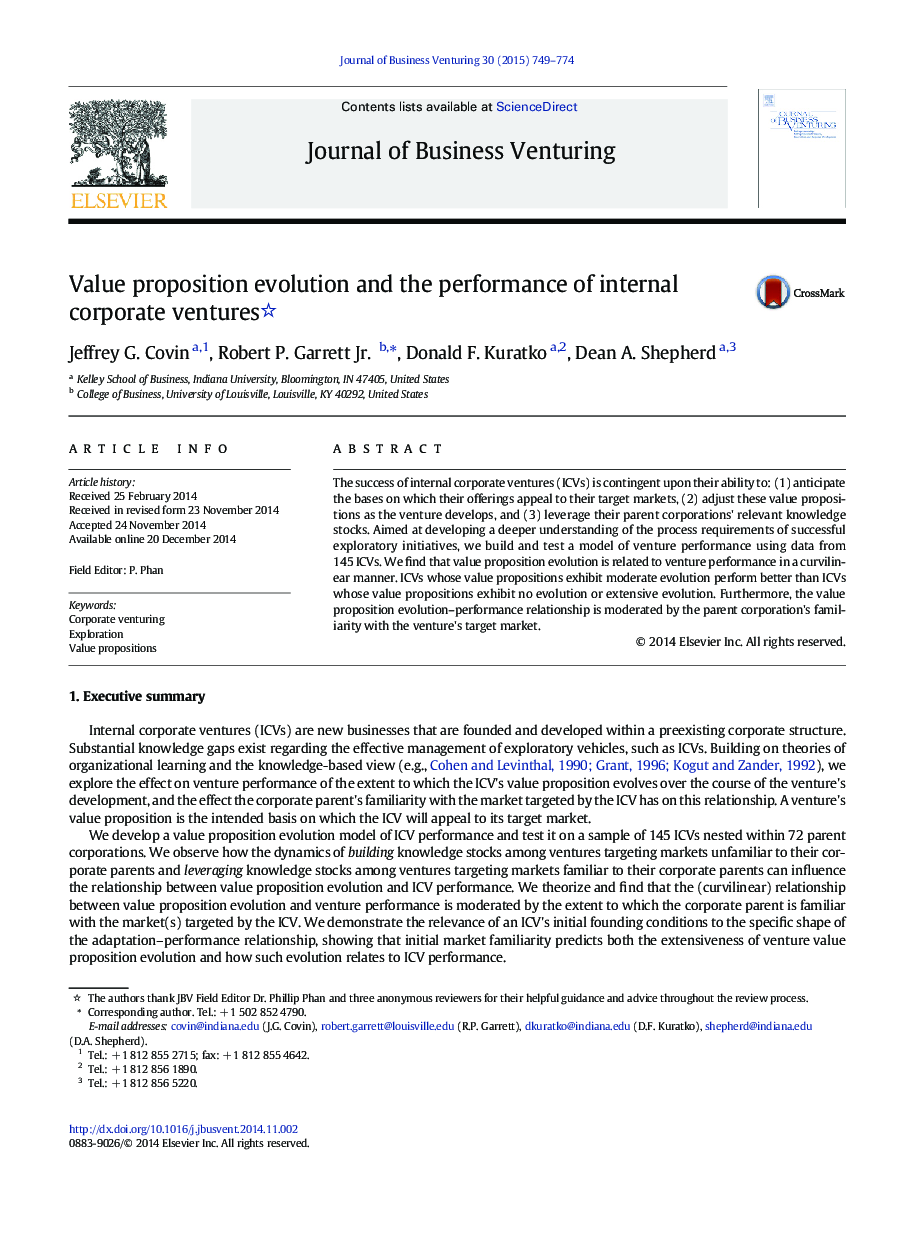| Article ID | Journal | Published Year | Pages | File Type |
|---|---|---|---|---|
| 1019335 | Journal of Business Venturing | 2015 | 26 Pages |
•Internal corporate ventures explore new business domains, and thus require an experimental posture.•Value proposition evolution should result from learning by the venture, but too much evolution is may be detrimental.•We hypothesize a curvilinear effect of value proposition evolution on performance, moderated by parent market familiarity.•The hypotheses are investigated using data from 72 firms that provided information on 145 internal corporate ventures.•We find support for both hypotheses and discuss the implications of our findings for future research and practice.
The success of internal corporate ventures (ICVs) is contingent upon their ability to: (1) anticipate the bases on which their offerings appeal to their target markets, (2) adjust these value propositions as the venture develops, and (3) leverage their parent corporations' relevant knowledge stocks. Aimed at developing a deeper understanding of the process requirements of successful exploratory initiatives, we build and test a model of venture performance using data from 145 ICVs. We find that value proposition evolution is related to venture performance in a curvilinear manner. ICVs whose value propositions exhibit moderate evolution perform better than ICVs whose value propositions exhibit no evolution or extensive evolution. Furthermore, the value proposition evolution–performance relationship is moderated by the parent corporation's familiarity with the venture's target market.
